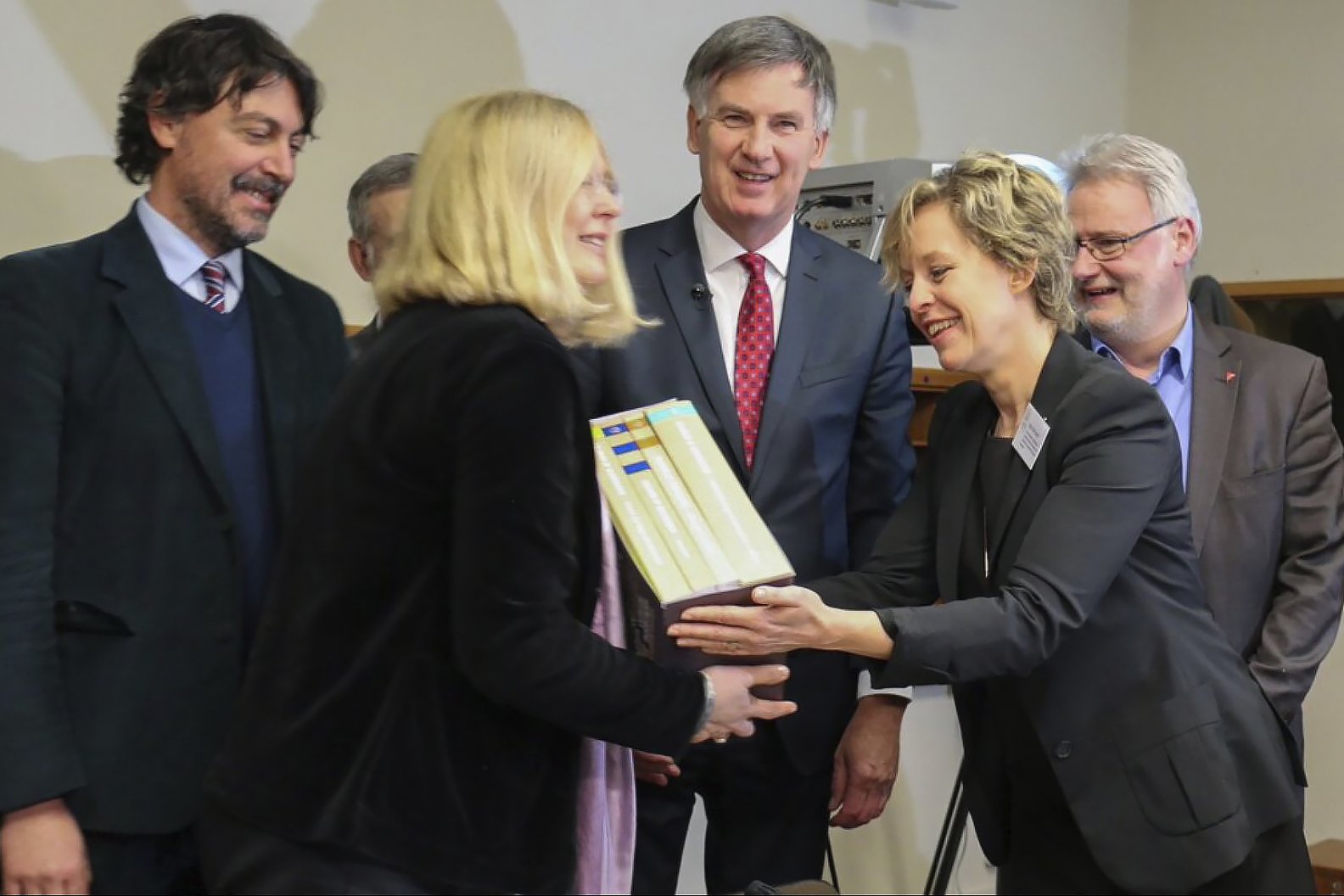Colonies of Benevolence approach UNESCO in Paris
Will Belgium and the Netherlands welcome a new World Heritage site in 2018?
Today in Paris, a Flemish-Dutch delegation handed over the nomination dossier for the Colonies of Benevolence to Mechtild Rössler, director of the World Heritage Centre of UNESCO. By doing so in person, the delegation hoped to demonstrate that they stand behind their dossier 200%. For the coming year and a half, Unesco will investigate whether the Colonies can effectively become World Heritage.

Seven Colonies of Benevolence
What are the Colonies of Benevolence, exactly? They are seven landscapes in the Netherlands and Belgium that were formed during a utopian social experiment in poverty reduction that started at the beginning of the 19th century. The basis of the experiment was the notion that poor people from the city could build a new life in the countryside. By working hard as farmers, such people could eventually provide for their own maintenance.
In just seven years time, between 1818 and 1825, seven Colonies were established under the aegis of the newly founded Society of Benevolence. The colonists converted at least 80 km2 of landscape into agricultural land with straight avenues or lanes and neat buildings. This structure is still clearly visible in the landscape of the seven former Colonies of Benevolence.
Five years of preparation
A place on the UNESCO World Heritage list is not just there for the asking. The reasons for the proposal are extensively documented and justified in a hefty nomination dossier. Over the last five years, no less than fourteen partners from the Netherlands and Belgium have worked very hard to reach this moment. It is hardly surprising, then, that a delegation of politicians, civil servants and special ‘ambassadors’ travelled to Paris in order to be present at this solemn moment.
The Dutch actors of the music-theatre show Het Pauperparadijs (The Pauper’s Paradise) accompanied the delegates. Lieven Van Gils, Flemish Colony Ambassador, also attended. ‘I’ve been following the development of the Wortel and Merksplas Colonies for as long as I can remember. It’s wonderful that the dossier has finally been submitted; it’s a moment that, as Colony Ambassador, I absolutely did not want to miss!’
Flemish delegate Peter Bellens, member of the executive council of the Province of Antwerp, is just as enthusiastic: ‘As co-chairman of Kempens Landschap, I am delighted that we are the motor behind this international cooperation on the Flemish side. This moment is the reward of hard work by many parties. We're definitely going to build on this Dutch-Flemish cooperation in the future.’
A decision in 2018
International experts will pore over the dossier for the next year and a half. In the summer of 2018, whether the Colonies of Benevolence are to be added to the list of World Heritage will be publicly announced. This is a symbolic moment, because it occurs exactly 200 years after the foundation of the first Colony in the Netherlands and 25 years after the abolition of the vagrancy law in Belgium.
Cees Bijl, chairman of Steering Committee for the Colonies of Benevolence and member of the executive council of the Province of Drenthe, waits in suspense: ‘Now that the dossier is submitted, we need to wait for the final decision of UNESCO. In the meantime, of course, we will not be standing still. We will continue to promote this unique cultural landscape and the story of the Colonies of Benevolence.’
Discover the story of the Colonies of Benevolence
The seven Colonies together embody their shared past. Flemish delegate Inga Verhaert, member of the executive council of the Province of Antwerp and co-chairman of Kempens Landschap, explains entusiastically: ‘Anyone who wants to visit a colony can go to different visitor centres where this story is told. The visitor centre Colony 5-7 opens this spring in Merksplas, and it will be the starting point for any visit to the Colonies in Wortel and Merksplas.’ A new website has also been developed online where you can learn all about the seven Colonies www.kolonienvanweldadigheid.eu.